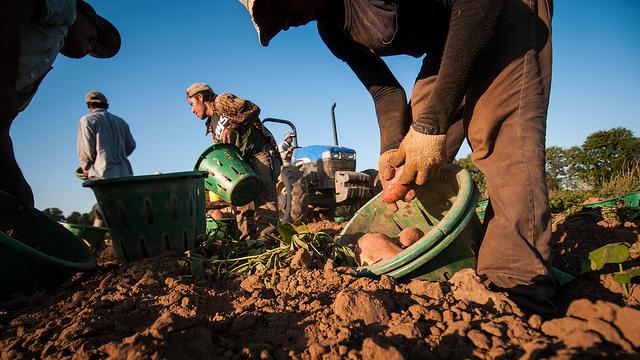
29 January 2016, Open Democracy
Labour migrants, like all of us, are complex human beings who make difficult choices regarding their available options, yet strategies to end trafficking and coercive migrant labour practices rarely take migrant agency into account. Such initiatives regularly involve advocates, corporations, governments, and consumers – everyone but the workers themselves, who are deemed hapless victims.
This is a lost opportunity, because migrants have much to contribute. They alone experience recruitment first hand, making them intimately familiar with the gap between legal protections and what actually happens. As a result, migrants have important contributions to make as policy designers, as they are able to recommend standards and enforcement procedures that are concrete and context-specific. They are effective educators, providing their peers with information not only about formal rights but also about real conditions and sources of support on the ground. Migrants can also act asmonitors of recruiter behaviour. Recruitment transactions happen in their presence, often with no other witnesses, and so they are uniquely positioned to report abuses. Perhaps most importantly, migrants can combat recruitment violations as active participants in trade unions and advocacy campaignsthat seek to change the behaviour of recruiters, employers, and governments.
One example of an initiative powered by migrants is the Coalition of Temporary Workers (CTW) in Sinaloa, Mexico. CTW was founded in 2013 with the support of the Economic, Social, and Cultural Rights Project (“ProDESC”, from its Spanish initials), a Mexico-based human rights organisation that engages with migrants, miners, indigenous communities and communal landowners in Mexico to defend and advance their rights. CTW is made up of temporary labour migrants in Sinaloa, who implement collective efforts to advance and protect their own rights during recruitment. Many of the same migrants are also members of the National Guestworkers Alliance, located in Louisiana where they work, so they are able to demand recognition of their rights wherever they are.